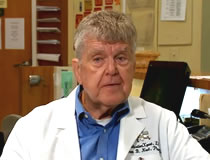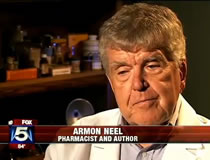November 8th, 2015
Study Finds Drug Errors in 50% of Surgeries
Study Finds Drug Errors in 50% of Surgeries
November 6, 2015
Administering drugs in the perioperative setting is fraught with error potential because the urgent need to treat patients in a high-stress environment often causes caregivers to skip standard safety protocols, suggested a new study.
Researchers at Massachusetts General Hospital (MGH), a large academic medical center in Boston that performs more than 40,000 annual surgeries in 64 operating rooms, reviewed 277 surgeries involving more than 3,500 medication administrations performed by 226 anesthesia providers. They defined amedication error (ME) as any mistake that occurred during the process of ordering or administering drugs and an adverse drug event (ADE) as drug-related injury or harm, regardless of whether it was caused by a ME.
Direct observation of chart reviews conducted by the research team discovered 193 events — for an overall rate of 5% — involving 153 MEs and 91 ADEs (a single event can involve both), of which nearly 80% were considered preventable, noted the study.
According to the findings, MEs occurred in 1 out of 2 surgeries. Additionally, more than one-third of MEs resulted in ADEs, and the other two-thirds could have caused patient harm. The medications most often associated with errors were propofol (25.6%), henylephrhine (10.3%), and fentanyl (9.4%).
Labeling mistakes, administration of the incorrect dosage, failure to treat according to changes in patients’ conditions, and documentation errors occurred most often. According to the study, 30% of mistakes were significant (harmful, non-threatening symptoms), 69% were serious (harmful symptoms that could have caused serious, non-life-threatening harm), less than 2% were life threatening, and none were fatal.
There was no difference in error rates between the attending anesthesiologists, nurse anesthetists, and resident physicians involved in the study. The potential for error was greater during longer procedures and surgeries requiring the administration of 13 more administrations, perhaps because of caregiver fatigue, noted the study.
Previous research mostly relied on self-reported errors, which are less reliable and miss the vast majority of mistakes compared with direct observation, according to study lead author Dr. Karen Nanji, an assistant professor of anesthesia at Harvard Medical School and part of the department of anesthesia, critical care and pain medicine at MGH.
This was the first large-scale observation of medication errors in the perioperative setting, according to the researchers, according to Dr. Nanji, whose research team believed true perioperative medication error rates are much higher than the previous literature suggested.
“Experts who believed errors rates reported by past research might be surprised by the results of the current study,” said Dr. Nanji. She called MGH a national leader in patient safety and surmised medication error rates are probably at least as high at many other hospitals.
Medications are handled differently in operating rooms than in other areas of hospitals, because patients’ conditions change rapidly, said Dr. Nanji. “Many of the time-intensive safeguards used in other areas, such as double-checking and dispensing by the pharmacy, are not used,” she explained. “We need to develop new solutions that are quick, yet effective, to reduce errors.”
The current findings provided a much clearer understanding of the true medication error rate and types of errors that occur in the operating room, so more effective safety protocols can be created, noted Dr. Nanji. She said her research team is working with MGH to design targeted interventions involving technology-based solutions such as bar-code scanning to document which medication are used and real-time drug decision support to instantly alert providers to patient allergies or wrong medication doses immediately before drugs are administered. She also expressed interest in modifying processes that would provide additional layers of medication verification and minimize opportunities for care providers to circumvent safety checks.
STOP.... Is this a LOUD message showing a vital need for the development of a "Surgical Pharmacist"... Technology in Medicine has changed requiring a specialist in the area of drugs and how to use them. Yet not much has changed in the actors in the surgical theater since Crawford Long. A trained expert in the use of drugs in surgery seems like the only wise idea that will work. ADD..ABNJR
The study was published online in the journal Anesthesiology.
Reference:
1. Nanji KC, Patel A, Shaikh Sk, Seger D, Bates DW. Evaluation of perioperative medication errors and adverse drug events. Anesthesiology. 2015 Oct 24. [Epub ahead of print]
- June 26th, 2015
New Drug Promises Relief from Tinnitus, EpilepsyRead - September 4th, 2015
"Biosimilar" ???Read - September 16th, 2014
Heparin Recall Due to Human HairRead - September 10th, 2014
FDA Staff: Novo Nordisk Drug Liraglutide Effective for ObesityRead - October 27th, 2014
Oral Inosine a Potential Disease-Modifying Therapy for Parkinson'sRead
Geriatric Nutrition
Without good nutrition, positive drug therapy outcomes are very difficult to obtain, For the best in Geriatric Nutritional Information
Find out more Optima SolutionsContinuing Education
Each month we will post an analysis of specific aspects of government long-term healthcare regulations.
Find out more


